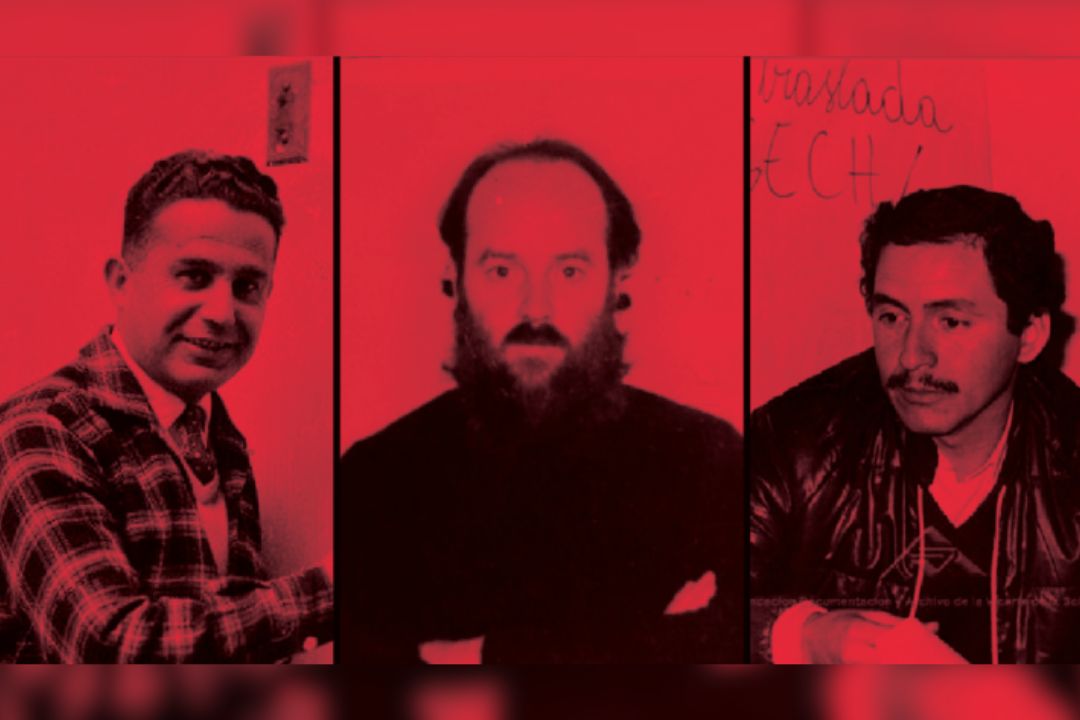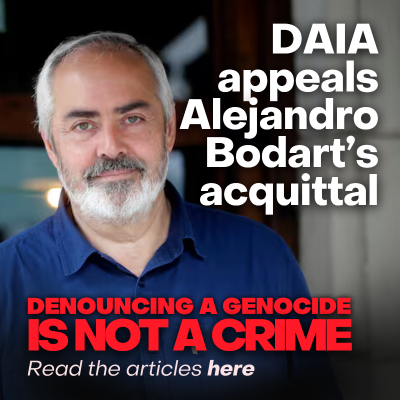Impunity continues to mark the history of Chile four decades after the murders of Manuel Guerrero, Santiago Nattino, José Manuel Parada, and the young combatants who fell under the dictatorship. Denialism and repression continue to encourage the ultra-right, but memory cannot be reduced to a litany of defeat. Memory must be a banner of active resistance, vindicating the struggle of those who faced state terror and fought for socialism.
By Camilo Parada, Anti-capitalist Movement
The importance of a fighting memory in the face of impunity and denialism
It’s been 40 years since the beheading of the communist militants Manuel Guerrero Ceballos, Santiago Nattino Allende and José Manuel Parada Maluenda, as well as the murders of the young MIR fighters, Paulina Aguirre Tobar and Rafael and Eduardo Vergara Toledo; and 41 years sincethe assassination of fellow MIR militant Mauricio Maigret Becerra, all of them killed by agents of the civil-military dictatorship in blatant acts of State terrorism, which unleashed one of the political crises of the Junta Militar, mobilized the masses and evidenced how human rights violations were sistematically perpetrated by the State, it is time to dispute memory so that it is not just a litany of defeat. That is, a memory that highlights the human and militant dimension of fallen comrades on the day of young fighters.
If we take the ‘Slit-Throat Case’ (a case that is dramatically close to me, being the son of José Manuel Parada), it’d be reasonable to say that it is a symbol of the systematic use of terror and barbarism as a mechanism of political and social control. The brutality of the crimes generated immediate repercussion: on the one hand, the Junta Militar sought to send a message of terror, and on the other, it manipulated public opinion from the very beginning, claiming that it was a settling of scores between communists. At the same time, they built a montage with the murders of Paulina Aguirre Tobar on a plot in El Arrayán and the Vergara Toledo brothers in Villa Francia, trying to impose once again the worn-out version of a “confrontation”. This type of manipulation has achoed through this democracy inherited from Pinochetism, with other Carabineros staging recent murders of Mapuche fighters and the complicity of the mass media. However, in the Slit-Throat Case, the official narrative was quickly put in check by reality.
The impact of these crimes transcended independent media and the international press, bypassing the censorship imposed by the dictatorship and generating a massive response at the subsequent funerals. Journalistic coverage, testimony of the relatives and the reaction of the human rights organizations turned the crime into a breaking point for part of public opinion, precipitating the departure of General César Mendoza from the Military Junta and increasing international pressure on the Pinochet dictatorship.
Although there were convictions against some of those responsible for the Case, justice only sanctioned the material authors, without moving towards the intellectual perpetrators. In addition, the murderers had prison benefits, consolidating impunity in human rights matters in Chile and contradicting the international agreements and treaties signed by the State itself. Pacts of silence between the perpetrators have hindered the clarification of hundreds of crimes against humanity, preventing the identification of material and intellectual authors, as well as belated justice and ridiculous sentences. All of them, ways of perpetuating impunity over the years.

(March 29, Day of the Young Combatant. Yesterday's impunity is today's impunity. Dissolution of the Chilean police and Armed Forces. For Santiago Natinno, José Manuel Parada, Manuel Guerrero, Eduardo and Rafael Vergara, Paulina Aguirre, Mauricio Maigret, and all comrades. Our tribute to them is fighting for socialism. Anticapitalist Movement).
After 40 years of these crimes, impunity continues to be a constant element of the regime, one present in all administrations. Despite great announcements made from time to time, impunity is expressed in the lack of political will, in institutional silencing and in the insufficiency of forceful state policies to guarantee access to truth and justice. The Slit-Throat Case is not an exception, but part of protecting the structure for human rights violators, which has even permeated the transition to democracy. This same impunity endorses the current forms of injustice and repression in Chile, where human rights continue to be violated and justice denied. Even the investigative continuity of the human rights violations that occurred in 2019, during the October Rebellion, has been hindered.
Despite the negotiated return to democracy in 1990, Chile continues to violate human rights and perpetuate impunity. We saw it in another exit negotiated, with skeletons in the closet, with the pact during the rebellion: the Agreement for Peace and the New Constitution. The repression in contexts of social protest (currently with artisanal fishermen at the point of threats and shots), the permanent militarization of the Araucanía and the serious violations documented during the 2019 Rebellion show that state violence is not a vestige of the past. Cases of eye mutilations, torture and sexual abuse of detainees showed the persistence of repressive practices inherited from the dictatorship, reactivating the debate about the security forces. Let’s remember that the refounding of Carabineros was one of the unfulfilled promises of the Boric government. All this is happening in a context of asymmetric polarization, with a resurgence of the far-right worldwide, which puts security and migration on the agenda without addressing its structural causes, linked to a decadent capitalist system.
Denialism and post-truth represent a real and growing threat at the international level, and Chile is no stranger to it. Proto-fascist groups and sectors of the far-right promote narratives that relativize or justify the crimes of the dictatorship, promoting historical revisionism. We must be alert. Moreover, we must build the strongest unity of action against the far-right, with political independence, without sectarianism or enlightenment.
The denial of human rights violations is not only a rhetorical exercise; it is also a political instrument that facilitates the growth of authoritarian projects. 40 years after the Slit-Throat Case, the Vergara Toledo brothers, Paulina Aguirre Tobar and Mauricio Maigret, marks the history of the Day of the Young Combatant. Memory remains a banner of resistance against impunity and denialism. However, that must be disputed, so that it does not focus on death, but highlights the militant, fighting and revolutionary dimension of those who faced the dictatorship and fought for a world diametrically opposed to the capitalist-neoliberal model imposed with terror.
For this struggle to be effective, it is essential to break with the system that perpetuates this reality, with an anti-capitalist perspective. It is necessary to build an independent political alternative, critical of the institutionalization of memory, without falling into electoral manipulations. There are no shortcuts: we must overcome sectarianism and work for an anti-capitalist left that does not abandon class struggle, that disputes power and confronts reformism and possibilism that have yielded, time and again, to the agenda of the ultra-right and the capitalists.





